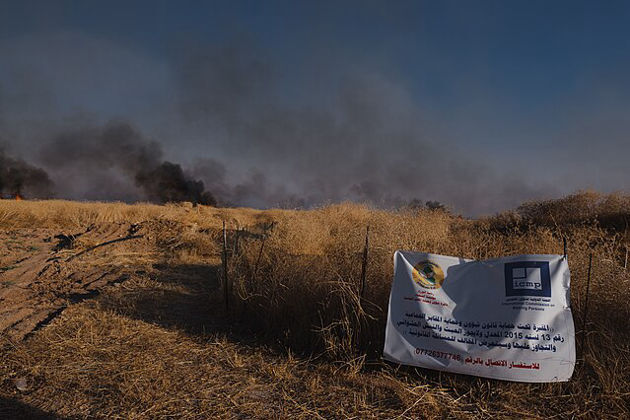Move FM Global News

Thousands of Iraqis may be buried in Al-Khafsa sinkhole
Aug 20, 2025IRBIL, Iraq: Iraqi authorities have launched the excavation of a site south of Mosul believed to contain one of the largest mass graves left by the Islamic State group during its reign of terror a decade ago. The sinkhole, known locally as al-Khafsa, is suspected to hold thousands of bodies, including Iraqi soldiers, police officers, Yazidis, and Shiite victims.
Iraq’s Martyrs Foundation is leading the effort in cooperation with forensic investigators, the judiciary, and the directorate of mass graves. According to officials, work began on August 9 at the request of Nineveh’s governor. The teams first collect the surface remains and build a database before attempting a full exhumation. Authorities say international technical assistance will be needed to safely continue due to hazards such as sulfur water and unexploded ordnance.
Ahmad Qusay al-Asady, who heads the Martyrs Foundation’s excavation department, said his team is working to gather evidence and establish a DNA database to help identify victims. Families of the missing are being asked to provide samples for comparison. “Proper identification must come first,” he explained, stressing that only after laboratory processing is complete can large-scale recovery proceed.
Lawyer Rabah Nouri Attiyah, who has handled dozens of missing persons cases in Nineveh, described Khafsa as “the largest mass grave in modern Iraqi history.” He noted that roughly 70 percent of the remains are believed to be military and police personnel, with Yazidis and other minorities making up the rest. Attiyah’s relatives were among those killed. Witnesses reported seeing Islamic State fighters bus victims to the site before executing them, often by beheading.
During its peak, ISIS ruled vast areas of Iraq and Syria, carrying out massacres, mass enslavement of Yazidi women, and public executions. Although the group was militarily defeated in Iraq in 2017 and lost its last Syrian stronghold in 2019, the scars of its brutality remain. Dozens of mass graves have since been uncovered across both countries, but Khafsa is feared to be among the most extensive.
As excavation continues, families of victims hope the lengthy process will bring long-awaited answers about the fate of their loved ones and deliver a measure of justice for one of Iraq’s darkest chapters.


